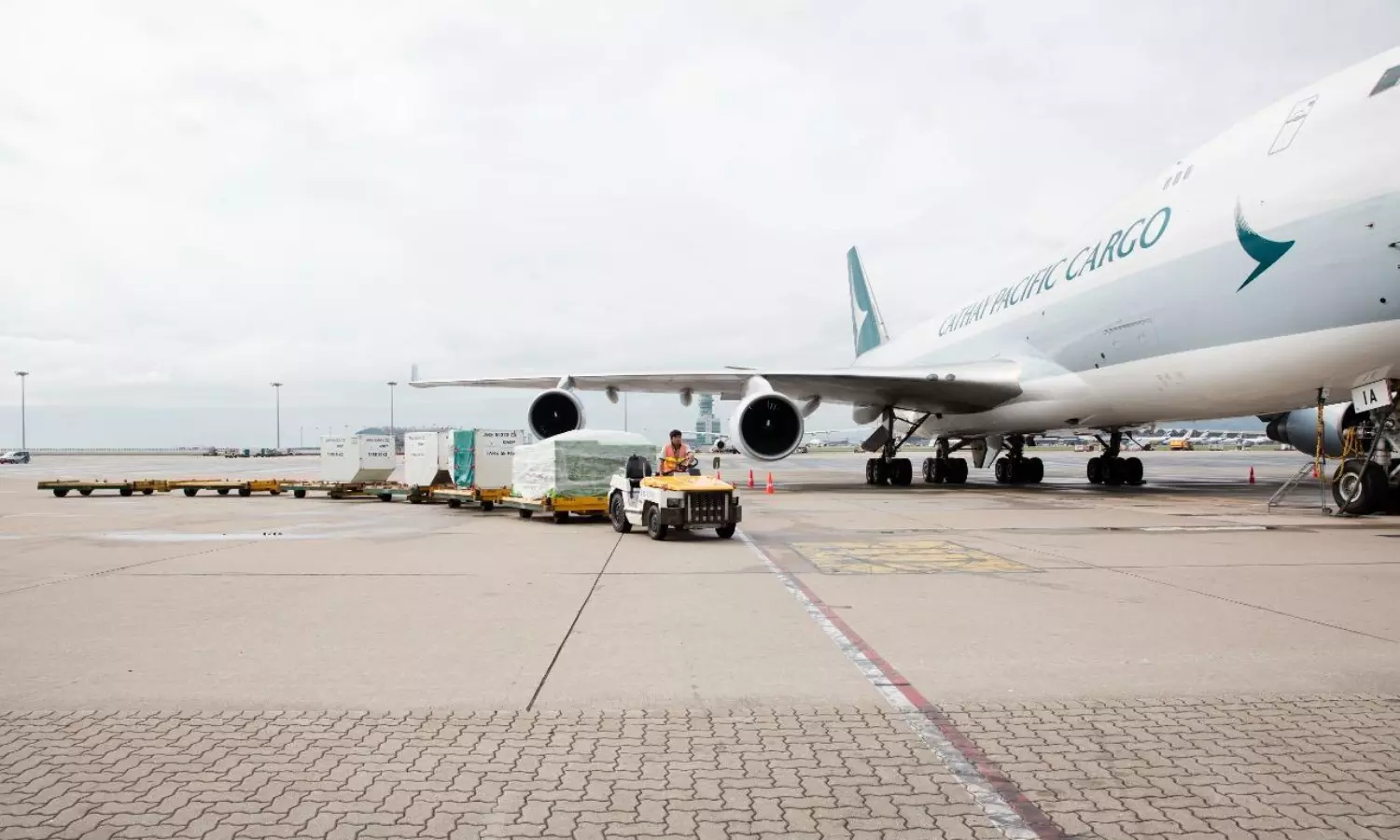Cathay Pacific Sept cargo carried down 21% to 104,055 tonnes
In the first nine months of 2022, tonnage decreased 10% to 835,497 tonnes against a 24% decline in capacity.

Cathay Pacific carried 104,055 tonnes of cargo in September, a decrease of 21 percent compared to September 2021 and a 40 percent decrease compared with the same period in 2019.
"The month's cargo revenue tonne kilometres (RFTKs) decreased 28 percent year-on-year, and were down 39 percent compared to September 2019. The cargo load factor decreased by 13.3 percentage points to 66.4 percent while capacity, measured in available cargo tonne kilometres (AFTKs), was down by 14 percent year-on-year and was down by 39.4 percent versus September 2019," says an official release.
In the first nine months of 2022, the tonnage decreased 10 percent to 835,497 tonnes against a 24 percent decline in capacity (5,356,142 tonne km) and a 32 percent drop in RFTKs (3,860,026 tonne km) compared to the same period for 2021, the release added.
"On the cargo side, tonnage in September decreased about 21 percent compared to last year's exceptionally high level," says Ronald Lam, Chief Customer and Commercial Officer, Cathay Pacific. "We had reduced cargo flight capacity in expectation of this and operated fewer cargo-only passenger services on long-haul routes. However, the fall in demand compared with last year was greater than predicted, largely due to weaker consumer demand and reduced manufacturing activities in the Chinese Mainland. This prolonged the dip we typically see after the Mid-Autumn Festival and also meant the pre-National Day Holiday uptick was relatively mild. Overall last month, cargo flight capacity was approximately 61% of pre-pandemic levels."
On outlook for the rest of the year, Lam says: "Regarding cargo, as we resume more passenger flights, the additional cargo capacity provided by the bellies of our passenger aircraft will complement our full freighter schedule, enabling us to offer extended routings and more consistent services to our cargo customers. Demand from the Chinese Mainland softened over the National Day holidays but is expected to firm up again in the latter part of the month. We remain positive that there will be solid demand over the traditional cargo peak period, and while it will not reach the levels achieved last year, we expect it to still be above historical averages."


